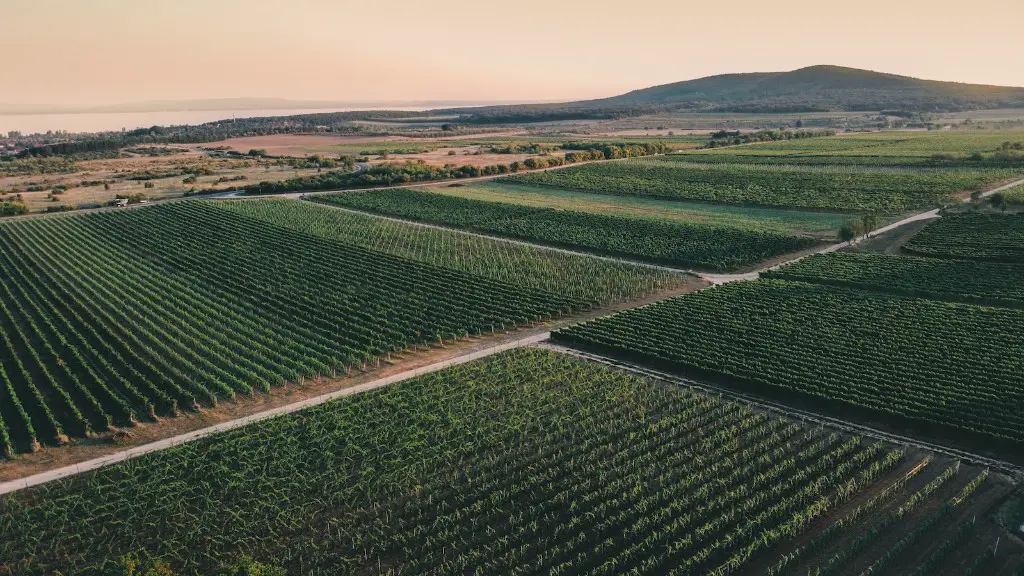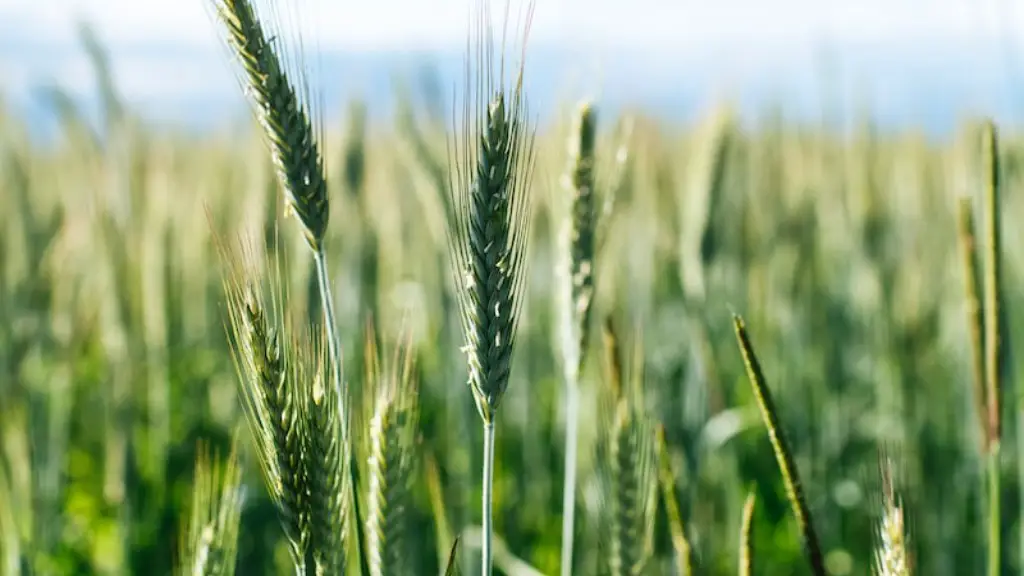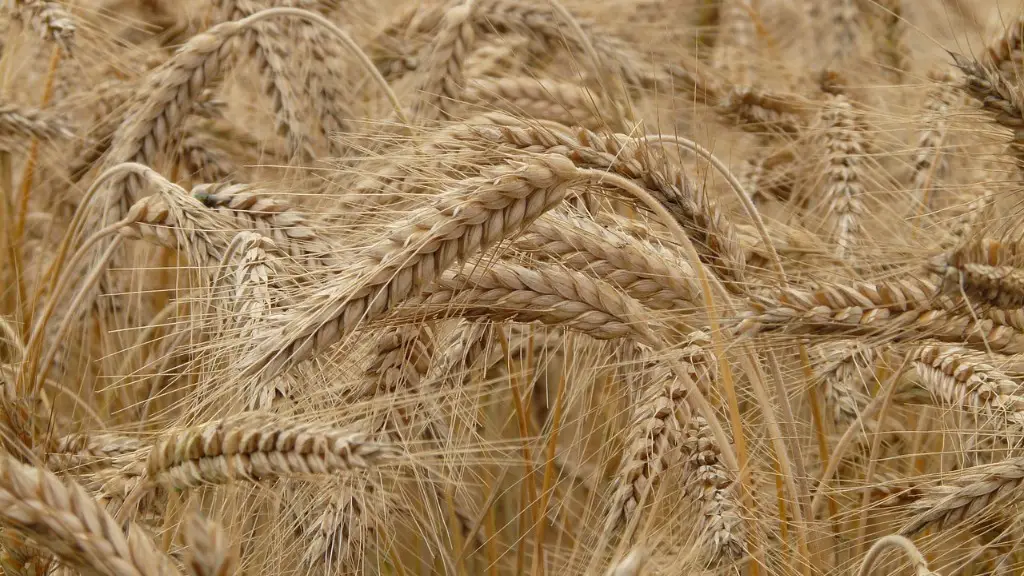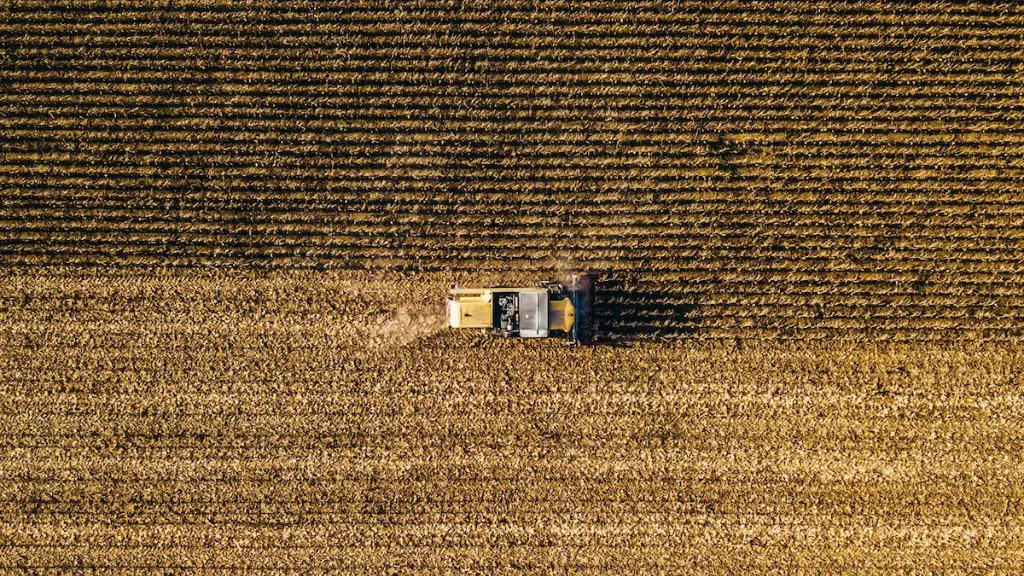As the world’s population continues to grow, the demand for food will only increase. And as we continue to damage our environment with toxic chemicals and pesticides, it’s more important than ever that we find sustainable, environmentally friendly ways to produce food. That’s where organic agriculture comes in.
Organic agriculture is a farming system that relies on natural processes, rather than the use of synthetic inputs, to produce food. This means no artificial fertilizers or pesticides, and no genetic modification. Organic farmers work with nature, rather than against it, to build healthy soils, control pests, and produce bountiful crops.
There are many reasons to choose organic food, but the three most important are that it’s better for your health, better for the environment, and better for the animals.
conventionally grown food is often sprayed with pesticides, which can end up in your body. These pesticides have been linked to a variety of health problems, including cancer, reproductive damage, and neurological problems. By choosing organic food, you can avoid these harmful chemicals.
In addition to being better for your health, organic agriculture is also better for the environment. Synthetic fertilizers and pesticides can pollute our air and water
Organic agriculture is a form of farming that is environmentally sustainable and focuses on producing food using natural processes. Organic agriculture eschews the use of synthetic fertilizers, pesticides, and genetically modified organisms, and instead relies on techniques like crop rotation, green manure, and composting to improve soil health and productivity. Organic agriculture has been shown to have numerous benefits for the environment, including reducing soil erosion and water pollution, and increasing biodiversity. Additionally, organic agriculture can be more resilient to climate change, as it reduces reliance on fossil fuels and builds soil carbon. Finally, organic agriculture has been shown to be more profitable for farmers, as it creates a premium product that consumers are willing to pay more for.
What are 5 pros of organic farming?
Organic farming is a type of agriculture that relies on natural processes, instead of using synthetic inputs such as pesticides and fertilizers. Organic farming has many benefits for the environment, as well as for the farmers and consumers of the food it produces.
Organic farming is environmentally friendly because it reduces the amount of synthetic chemicals that enter the environment. Organic farming also promotes sustainable development, as it is often more efficient in its use of resources than traditional farming.
Organic food is healthy and tasty, and is often more nutritious than food produced by traditional methods. Organic food is also less expensive to produce, as there are no synthetic inputs required.
Organic farming also generates income through exports, as organic foods are in high demand in many countries. Organic farming is a source of employment for many people, as it is often labour-intensive.
Organic food is a healthier option for reducing your exposure to chemicals and pesticides. It is also often fresher because it does not contain preservatives. Organic farming is also better for the environment as it results in less pollution, soil erosion, and energy usage.
What are 6 reasons to buy organic
Organic foods are grown without the use of synthetic pesticides, herbicides, or fertilizers. They also do not contain genetically modified organisms (GMOs).
Organic foods have been shown to contain higher levels of nutrients than conventionally grown foods. These include vitamins, minerals, antioxidants, and phytochemicals.
Organic foods have a superior flavor to conventionally grown foods. This is due to the fact that they are grown in more natural conditions, without the use of synthetic chemicals.
Organic foods are grown in a way that preserves our ecosystems. They are also free from hormones, antibiotics, and drugs that can be found in animal products.
Organic foods can help reduce pollution and protect our water and soil. They are also a more sustainable option, as they preserve agricultural diversity.
Organic farming has many benefits compared to conventional agriculture. These benefits include reduced pesticide use, reduced soil erosion, decreased nitrate leaching, and recycling of animal wastes. However, these benefits are offset by higher food costs for consumers and generally lower yields.
What are the 3 basic principles of organic farming?
The principles of organic agriculture are based on a holistic view of the natural world, and aim to create a balance between different elements. These principles include the principle of health, which emphasises the need to sustain and enhance the health of the soil, plant, animal, human and planet; the principle of ecology, which recognises the interdependence of all living things; the principle of fairness, which seeks to create a system that is fair to all involved; and the principle of care, which emphasises the need to care for the land and all living things.
Organic farming systems have many advantages over conventional farming systems. They have been found to yield the same amount of crops after a five-year transition, outperform conventional farming during years of drought by up to 40%, and earn 3-6 times more profit for farmers. In addition, organic farming systems leach no toxic chemicals into waterways and use 45% less energy.
What is the main idea of organic farming?
Organic farming is a type of agriculture that focuses on producing healthy food products without the use of harmful chemicals or other components that can damage humans and the environment. This includes industrial pesticides, insecticides, fertilizers, clones, GMOs, chemical medications, hormones, growth-boosters, and more. Organic farmers use natural methods to improve their crops, such as crop rotation, companion planting, and using organic fertilizers. This type of farming is beneficial for both people and the planet.
Organic produce may have more of certain antioxidants and types of flavonoids, which have antioxidant properties. These nutrients can help to protect against some chronic diseases, such as heart disease, cancer, and stroke.
In addition, organic produce is often fresher and tastier than conventionally-grown produce, since it is not sprayed with pesticides or other chemicals. This can make it more enjoyable to eat healthy fruits and vegetables.
What motivates people to buy organic
Organic foods are those that are produced without the use of synthetic pesticides, herbicides, or fertilizers. They are also free of genetically modified organisms (GMOs).
Organic foods are often perceived as being more nutritious, natural, and environmentally friendly than Non-Organic or Conventional foods. This is why many people choose to purchase organic foods.
Studies on consumer behavior and organic foods have contributed significantly to its development. These studies have shown that people are willing to pay more for organic foods because they believe them to be better for their health and the environment.
The organic food industry has grown tremendously in recent years, and it is expected to continue to do so. This is good news for consumers who want to make informed choices about the food they eat.
There are a few reasons why organic foods are perceived as being environmentally safe. Firstly, they are not grown with chemical pesticides and fertilizers, so there is no risk of these chemicals contaminating the food. Secondly, organic foods are not grown from genetically modified organisms, so there is no risk of them containing harmful mutations. Finally, organic foods are not processed using irradiation, industrial solvents, or synthetic food additives, so there is no risk of them being contaminated with these substances.
Why is organic better than GMO?
The organic certification is important not only because it guarantees that our food is free of harmful chemicals, but also because it guarantees that it is free of GMOs. GMOs are often engineered to be used in conjunction with harmful chemicals, such as Round Up or Agent Orange. By ensuring that our food is certified organic, we can be sure that it is safe for us to consume.
Organic farming is a type of agriculture that relies on naturally occurring processes, rather than the use of synthetic inputs, to produce food and other crops. Proponents of organic farming say that it is more environmentally friendly than conventional farming, and that it produces healthier food.
However, organic farming also has its disadvantages. Because organic farmers do not use synthetic pesticides or fertilizers, their yields are often lower than those of conventional farmers. This means that organic food is often more expensive than conventionally-grown food. Additionally, organic farming can require more labor than conventional farming, which raises production costs.
What is unique about organic farming
Organically grown food is food that is grown and processed using no synthetic fertilizers or pesticides. Pesticides derived from natural sources (such as biological pesticides) may be used in producing organically grown food. Organically grown food is often more expensive than food grown using conventional methods, but many people believe that it is worth the extra cost because it is healthier and more environmentally friendly.
Organic agriculture is built on four foundation principles: health, ecology, fairness, and care. These principles express the unique contribution that organic agriculture can make to the world, and they provide a vision for improving all agriculture in a global context.
The principle of health is based on the recognition that human health is intimately connected to the health of the natural world. Organic agriculture practices strive to create a holistic, balanced system in which plants, animals, and humans can all thrive.
The principle of ecology is based on the recognition that human activity is a part of the natural world, and that we must work with nature, not against it, in order to achieve sustainable outcomes. Organic agriculture practices work to build and maintain healthy soils, ecosystems, and watersheds.
The principle of fairness is based on the recognition that those who produce our food deserve to be treated with dignity and respect. Organic agriculture practices strive to create a fair and just food system, from farm to table.
The principle of care is based on the recognition that we have a responsibility to care for the natural world and all its inhabitants. Organic agriculture practices aim to produce food in a way that is environmentally responsible, humane, and socially just.
What is the five pillars of organic farming?
The principle of health is very important for sustainable development. A healthy environment is necessary for all forms of life to thrive. The principle of ecology states that we must be good stewards of the earth’s resources and that we must work to protect and conserve them. The principle of fairness reminds us that we must share the earth’s bounty equitably and that we must not exploit or pollute it. The principle of care states that we must show respect for all forms of life and take responsibility for our actions.
Organic farming has a number of advantages and disadvantages. Some of the main advantages include that it is climate-friendly and less harmful to the environment. However, some of the main disadvantages include that it is not entirely organic and that it has a smaller carbon footprint.
Conclusion
Organic agriculture is a form of farming that relies on natural processes instead of using synthetic inputs such as chemicals and genetically modified organisms. Organic agriculture can provide many benefits for farmers, consumers, and the environment.
Some of the benefits of organic agriculture include:
• Reduced dependency on fossil fuels – organic farming relies on renewable sources of energy such as solar, wind, and water power.
• Improved soil health – organic farming practices help to improve soil health by increasing organic matter and promoting beneficial soil microbes.
• Enhanced water retention and infiltration – organic soils have been shown to have better water retention and infiltration than soils that have been treated with synthetic inputs.
• Decreased soil erosion – organic agriculture can help to reduce soil erosion through the use of cover crops and other soil-building practices.
• Increased biodiversiry – organic farms are often home to a greater diversity of plants and animals than conventional farms.
Organic agriculture can provide many benefits for farmers, consumers, and the environment. Some of the benefits of organic agriculture include improved soil health, enhanced water retention and infiltration, decreased soil erosion, and increased biodiversity.
Organic agriculture is a production system that sustains the health of soils, ecosystems and people. It relies on ecological processes, biodiversity and cycles adapted to local conditions, rather than the use of inputs with adverse effects. Organic agriculture combines tradition, innovation and science to benefit the shared environment and promote fair relationships and a good quality of life for all involved.





